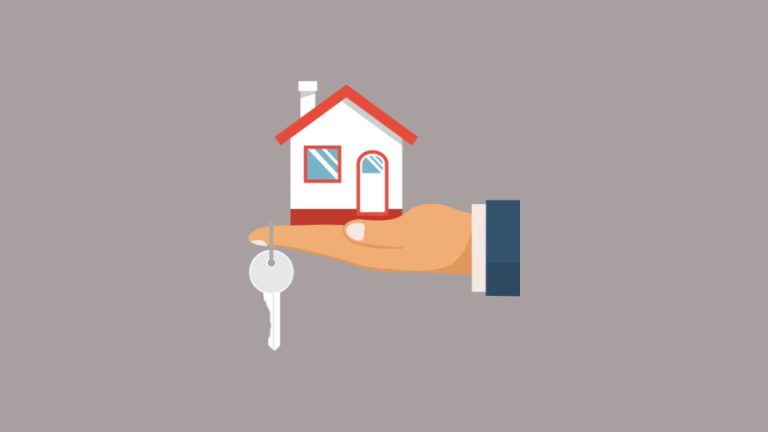Can Americans Buy Real Estate in Cuba?
Ever dreamt of owning an oceanfront villa under the gleaming Caribbean sun, in the heart of a culturally rich and vibrant country like Cuba? It’s a thought that often remains a figment of fancy for most Americans, surrounded by a cloud of uncertainty and legal complexities. But, can Americans really buy property in Cuba? For starters, the short answer is “not directly”. Surely, that’s a letdown – but don’t pack up your dreams just yet! The rest of this article aims to fan the glimmers of hope, by explaining the nuances of circumventing this legal impediment, providing a roadmap to navigate through the Cuban property market, which is as beautiful and perplexing as Cuba itself.
“You may not be able to directly purchase Cuban real estate, but understanding the intricacies of its legal, social, and economic fabric may unlock doors you never knew existed.”
Hold on tight as we sail through this exciting journey of unraveling the potential of investing in Cuban real estate. Let’s dive in!
Understanding the Cuban Property Market: An Overview
If you’ve ever wondered about buying a piece of property in the picturesque Caribbean nation of Cuba, you’re not alone. Just imagining yourself sitting on the porch of your very own casa particular while sipping on a cup of café cubano is enough to entice anyone. But before you embark on your journey to property ownership in Cuba, it’s essential to get a grip on the unique landscape of the Cuban real estate market.
Firstly, let’s clear up one misconception. Unlike the volatile real estate market dynamic in the United States, Cuba’s property market is relatively steady without the dramatic price fluctuations. The reason? The Cuban government closely regulates the real estate industry.
Until 2011, buying and selling properties were pretty much off the table for Cubans. The Cuban government allowed the exchange of property but strictly through swaps, and acquiring multiple properties was unthinkable so as not to create a class of landed gentry. However, this changed with economic reforms under Raul Castro’s presidency, and the law now permits Cubans and permanent residents to buy and sell their properties.
So how does this impact you as an American? Well, to put it briefly, although the Cuban property market has opened up to some extent, it’s not as straightforward for foreign buyers, especially Americans due to specific restrictions. We’ll dive into those intricacies in later sections.
Let’s take a look at some numbers. As of now, a two-bedroom apartment in Havana could cost anywhere between $30,000 to $50,000, while a larger independent casa in a city’s residential area might ask for around $200,000 to $2 million. Keep in mind these prices are merely indicative and can vary depending on location, property condition, and other factors.
The Cuban real estate market primarily operates in two categories, propiedades horizontales (horizontal properties) which are akin to condos or apartments, and propiedades verticales (vertical properties) which are private homes. Interestingly, most transactions occur via word of mouth, thus maintaining a more personal and localized real estate transaction process.
In conclusion, the Cuban property market with its charming colonial casas and modern apartment buildings beckons with potential, but American buyers must tread with caution. The market is regulated and may not offer the same flexibility, security, or appreciation rate as the U.S. real estate market. However, armed with the right information and patience, making a smart real estate investment in Cuba is not an impossible task.
Unraveling the Legalities: Can Americans Legally Purchase Cuban Real Estate?
Let’s dive right in and address that burning question on everyone’s mind – can Americans actually buy real estate in Cuba legally? The answer can be a little complicated, but let’s break it down. Technically, the answer is no. However, there’s a little more to the story than a simple yes or no.
As it stands, U.S. laws prohibit American citizens from purchasing property in Cuba due to the embargo enacted over Cuba back in the 1960s. This means that for any American citizen, even those with dual citizenship, the chances of legally buying Cuban property directly are very slim. However, despite the strict laws in place, some American investors have managed to make property acquisitions indirectly.
The workaround typically involves a foreigner (who isn’t an American citizen) purchasing property and then entering into an unofficial agreement with the American investor. It should be noted that these types of arrangements are not only unorthodox but also come with a high level of risk, as they are not recognized officially by either Cuban or American law.
In other words, the legalities surrounding Americans buying real estate in Cuba can be quite tricky to navigate and come with a considerable degree of risk. Chasing the Cuban dream might seem appealing, but one must tread carefully considering the intricate landscape of laws and regulations.
To truly understand the potential hazards and intricacies involved, let’s dive deeper into the specifics by outlining the requirements for Americans who are looking to buy property in Cuba, any restrictions they might face, and potential ways to overcome these restrictions.
Ultimately, while the very strict U.S. and Cuban laws limit Americans’ buying capabilities, foreign properties investment is not impossible. It is, however, laden with obstacles that require careful navigation and a deep understanding of both Cuban and U.S laws.
Diving into the Nitty-Gritty: Requirements for Americans Buying Property in Cuba
As an American, the quest for owning property in Cuba isn’t a straightforward process. The journey entails several requirements; the meticulous consideration of which ensures a smoother pathway of legally obtaining a Cuban property. But fret not! We’re here to help you comprehend the nitty-gritty involved. So, let’s delve in!
Proof of Permanent Residency
First and foremost, foreigners, including Americans, desiring to purchase property in Cuba, need to establish a permanent residency in the country. When you acquire your residency, it’s like a golden ticket allowing you to unlock the doors to Cuban real estate.
Financial Resources
Of course, the financial aspect is paramount. An American desiring to buy property here must have the necessary funds accessible in Cuba or via an international bank. Remember, US banks are not currently authorised to release funds in Cuba due to the embargo, hence the need for alternative financial arrangements. It’s also essential for the money to be completely legal, as shady financial practices can land you in hot water.
Legal Assistance
Securing a Cuban lawyer is as essential as the funds to buy your dream property. Remember, getting to grips with the complexity of Cuban property laws is far from easy. A lawyer can help translate the complex nature of this process into straightforward steps. Plus, they’ll be vital in ensuring you adhere to all legal stipulations and any paperwork is correctly completed.
Patience and Perseverance
While this isn’t an official requirement, we feel it’s worth mentioning. Buying a property in Cuba as an American is not an immediate or straightforward process. There may be hurdles, delays, and a seemingly endless list of requirements. However, patience and perseverance paired with a good understanding and respect for the Cuban system and culture can get you through.
Bear in mind, while these are the primary requirements, the above exists within the context of current American and Cuban legislation, including the embargo. This means that even with these in place, the ability of an American to buy property in Cuba can be influenced by changes to these overarching laws and policies.
Scope and Limitations: Restrictions on American Citizens Buying Cuban Properties
Understanding the limitations of an endeavor can often be as important, if not more so, than understanding the possibilities. Buying property in Cuba as an American citizen is not without its restrictions. Therefore, it’s crucial to grasp these constraints not as roadblocks, but as pivotal parts of the process you must navigate.
First and foremost, it’s worth noting that according to the Cuban constitution, foreign citizens cannot directly own property in Cuba. The only exceptions are if the foreign citizen is a permanent resident of Cuba or if the property is obtained via inheritance.
Secondly, American citizens should also be mindful of the implications of the U.S economic sanctions on Cuba. Under the U.S embargo against Cuba, most financial transactions between the countries are prohibited. Thus, facilitating a real estate transaction could potentially risk violating U.S law.
Thirdly, any property purchased in Cuba by American citizens cannot be used for commercial purposes unless an explicit authorization is granted by the Cuban government. Since the Cuban government retains the right to expropriate any property without compensation, this poses a significant risk for commercial investors.
Lastly, all Cuban properties must be purchased in Cuban pesos. The conversion process of dollars to Cuban pesos is subject to a 10% government-imposed penalty. This effectively increases the overall cost of the property for American investors.
These restrictions make the process of buying Cuban real estate a complex endeavor for American citizens. However, these constraints don’t necessarily mean it’s impossible to purchase property in Cuba. Rather, they define the strict terms and conditions that must be met in order to carry out the process legally and successfully.
Breaking Down the Cuban Real Estate Law: What Does It Mean for American Buyers?
With Cuba’s evolving economic policies, you may find the prospect of investing in Cuban real estate rather enticing. To understand how this works in your favor, it’s essential to decode the complexities of the Cuban Real Estate law first.
Back in 2011, when the Cuban government decided to loosen its restrictions on property ownership, it simultaneously ignited both hope and hurdles for the would-be foreign investors. While it was a step forward, the law, so-called Decree 288 was not designed to accommodate foreign investors directly. Instead, it emphasized the rights of Cuban citizens and permanent residents to buy and sell properties without governmental interference.
So, how does it impact you as an American investor? Let’s dive deep into the underpinnings of Cuban real estate law.
The provision enables Cubans to own up to two homes (a main residence and a vacation home), and they can freely transact them. However, direct sales to foreign buyers are prohibited unless they hold permanent residency in Cuba. This imposes serious limitations on American buyers who do not pose such privilege.
More so, the law mandates that all transactions must be carried out in Cuban Convertible Pesos (CUC), and both buyer and seller must have a Cuban bank account. This presents another layer of complexity for foreign investors who would face significant challenges transacting large sums into CUC given current U.S. regulations on financial transactions with Cuba.
Now, you might be wondering about a loophole – and there is one. Foreigners, including Americans, can purchase Cuban properties through a so-called ‘title-holding’ Cuban citizen. However, this work-around comes with its own risk. Remember, you don’t legally own the property in this situation. Should conflict arise, the Cuban law will always favor its citizens, which could result in potential financial loss or legal troubles for you.
While there have been narratives of successful property acquisitions by Americans using this method, we advise extreme caution and in-depth due diligence. This is a grey area in Cuban real estate law, which could potentially change in the future. Above all, your investment security heavily relies on the goodwill of the title holder, who is a Cuban citizen, that inherently poses a risk in itself.
Step by Step Guide: How Can an American Buy Property in Cuba
Acquiring real estate in Cuba as an American citizen is a meticulous process, riddled with legal complexities and political complications. We have put together a simple step-by-step guide to help you navigate this tricky terrain. By following this roadmap, you should be well on your way to purchasing your dream property on this Caribbean island.
- Acquire Permanent Residency: To buy property in Cuba, you must first establish permanent residency in the country, backed by proof.
- Arrange Finances: Prepare your financial resources. This includes setting up a Cuban bank account and ensuring the funds are legally acquired and can be transferred into Cuba.
- Find a Property: After settling the above, you can now find a property that suits your needs. It’s advisable to collaborate with a local real estate agent or attorney who understands the Cuban property market.
- Legal Assistance: Engage a local Cuban lawyer who can help you understand the local laws and ensure a smooth transaction process.
- Property Verification: Make sure to verify the property’s title and the seller’s ownership rights. This is vital to avoid potential disputes or legal complications down the line.
- Sign the Contract: Once you’re satisfied with the correctness of all documents, sign the sales contract. Both buyer and seller must sign in the presence of a notary public.
- Payment and Title Transfer: Payment is done directly to the seller, not through a third party. Upon receiving payment, the seller must go to the Property Registry to transfer the title to your name.
- Registration: As the new owner, register your property with the Cuban Property Registry. Only after this step is your purchase considered legal and complete.
Keep in mind that an American citizen acquiring property in Cuba will always have some level of ambiguity due to the legalities involved. Therefore, a legal professional’s assistance throughout the entire buying process is essential. Despite these challenges, the dream of owning a property in the beautiful Caribbean island of Cuba can be realized with patience, perseverance, and due diligence.
Caveat Emptor: Risks and Challenges for American Buyers in Cuba
While investing in the Cuban real estate market presents unique opportunities, it also brings with it a set of challenges and risks due to the peculiarities of the Cuban property laws and market conditions. As an American buyer, you need to be aware of these potential pitfalls and take steps to mitigate them.
Frauds and Scams
The Cuban real estate market still lacks the kind of transparency, regulation, and structure that you’re likely used to in America. As a result, scams and frauds are not uncommon. Scammers often prey on foreigners who may not have a deep understanding of the local market or customs. The best way to stay safe is to work with a reliable local attorney and a reputed real estate agency.
Property Disputes and Claims
There have been numerous cases of property claims and disputes in Cuba due to the changes in property laws over the years. Some properties that are on sale may be subject to historical claims by people who were dispossessed of their properties during the Cuban revolution. While local Cuban law may provide clearance, international laws and the U.S. government may view such purchases as illegitimate.
Political Instability
The political climate in Cuba presents a risk, as policy changes can often cause disruptions in the real estate market. Changes in US-Cuban relations can also impact your property rights and accessibility. It’s essential to stay updated and have a contingency plan for such scenarios.
Infrastructure and Maintenance Issues
Many buildings in Cuba are older and might not have been maintained to the same standard as properties in America. You may need to invest substantial amounts in renovation and improvement. Ensure you have a thorough property inspection before making a purchasing decision.
Remember, owning a property in a foreign country always has its risks and Cuba is no exception. As a buyer, you should perform thorough due diligence and rely on local professionals for advice and guidance. Despite these challenges, with appropriate caution and careful planning, purchasing real estate in Cuba can be an enriching and rewarding experience.
Insider Tips: Navigating the Complex Cuban Real Estate Market
When it comes to traversing the intricate landscape of Cuban real estate, a little inside knowledge can go a long way. The following tips have been compiled from firsthand experiences and careful research to provide you with a much-needed edge.
Engage with Locals:
Establishing a strong local network is essential. Whether it’s your lawyer, real estate agent, or neighbors, each connection can offer insights and assist you in navigating the local property scene. They can help you understand the nuances that characterize the Cuban property market, helping you sidestep potential pitfalls and optimize opportunities.
Research Thoroughly:
Cuba’s real estate market is not as transparent as that of many other countries. Therefore, it’s essential to do your homework. Look into the property’s history, negotiate the price, and investigate the specifics of the location. Are there any local development plans? What’s the area like? What are the local amenities? Make sure you have a detailed picture before you commit.
Understand the Cultural Differences:
Property agreements in Cuba might not follow the same norms you’re accustomed to in the United States. Practice patience and keep in mind that purchasing property in Cuba might involve more personal interaction and relationship-building than you’re used to.
Consider the Rental Market:
Buying property to rent out can be an attractive prospect. But beware, the rental market in Cuba is also complex and regulated by the state. Understand these complexities and regulations to avoid any missteps.
Inspect Carefully:
Cuban properties might not meet the standards expected in the US, especially in terms of infrastructure. Always organize a thorough inspection of any property you’re considering buying. Evaluating the physical condition of a property is crucial for making informed investment decisions.
Stay Informed:
Legislation can change, and the Cuban-American relationship can shift. It’s crucial to stay updated with both Cuban policy and U.S. policy regarding property ownership in Cuba. Keep your finger on the pulse of both to ensure that your property investment is secure and legal.
Don’t forget that while these tips might help navigate the Cuban real estate market, it still remains a challenging and risky endeavor. Enlist professional assistance and do your due diligence to protect your investment.
Pros and Cons: Weighing the Benefits and Risks of Investing in Cuban Real Estate
While the idea of owning a sun-kissed villa with breathtaking beach views in Cuba sounds appealing, it’s important to remember that investing in Cuban real estate is not devoid of complications. Given the intricate legal landscape, diplomatic intricacies, and financial constraints, it’s crucial to consider the upsides as well as the potential pitfalls. Let’s discuss some of them.
Pros
- An Untapped Market: Owing to the recent changes in property laws, the Cuban real estate market is relatively unexplored by foreign investors. As a result, you stand a chance to secure properties at attractive prices before the market trends upwards.
- The Allure of a Tropical Paradise: With stunning beaches, lush landscapes, and fascinating cultural heritage, Cuba offers a distinctive charm that appeals to many would-be property owners.
- Potential for Rental Income: The vibrant tourism industry in Cuba opens up possibilities for earning rental income, especially from vacation rentals if location and property conditions are optimal.
- Historic and Vintage Properties: Many Cuban properties have a distinct architectural style and historic value. For those with an appreciation for such unique properties, Cuba can be a real draw.
Cons
- Uncertain Legal Terrain: The legal structure around property rights in Cuba can be unclear and complex, leading to potential disputes or difficulties in securing your ownership rights.
- Political Risk: Given the historically strained relations between the U.S. and Cuba, changes in political climates can potentially affect your property rights and the property market as a whole.
- Limitations on Resale: The law dictates that Cubans can only own one home or vacation property. This restriction may limit potential buyers when you decide to sell.
- Infrastructure Challenges: Infrastructure in Cuba is not always up to the standards found in more developed countries. Regular issues with power, water supply, and internet connectivity can affect the quality of life for you or your renters.
Ideally, one may consider the Cuban real estate market as a sort of “frontier market”. It’s less explored, potentially risky, but with risks that might lead to high rewards for those who venture wisely. As with any investment, remember to do your due diligence, seek legal advice, and do not invest more than you can afford to lose.
Securing Your Investment: Safeguarding Your Cuban Property
Once you’re at the stage of owning a property in Cuba, it’s essential to protect that investment. It may feel like you’ve conquered a mountain just getting this far, but remember, securing your property is just as crucial. Here’s how you can do it.
Firstly, it’s all about insurance. Just like in the US, insurance can provide critical financial protection against natural disasters, theft, and other unforeseen events. However, bear in mind that the insurance sector in Cuba is nascent compared to the rest of the world, so be prepared for a slightly different process.
Another way to secure your property is by regularly maintaining it. Whether that means fixing a leaky roof, repairing a broken window, or handling any other minor or major home repairs, tending to these issues sooner rather than later will surely save you from the substantial costs down the line. You must handle this responsibly because Cuba’s tropical climate can lead to rapid wear and tear.
Consider hiring a property management company if you are not planning to live in Cuba full-time. These companies can handle everything from basic maintenance and repairs to paying utility bills and dealing with tenants if you’re renting out your property. They can serve as your local eyes and ears, ensuring your property is cared for even when you’re miles away.
Further, understanding and respecting the local laws and regulations is another key to safeguarding your investment. This includes everything from knowing the local tax obligations to being aware of any regulatory changes that could affect property rights.
Finally, if you’re planning to rent out your property, securing it also means finding the right tenants. Make sure to have a thorough tenant screening process in place, or employ a reputable local agency to handle it for you.
In the end, remember, as exciting as owning a property in a place like Cuba can be, it’s sensible to approach it with the same seriousness and due diligence you would apply to an investment back home. So, follow these steps, and you’ll be well on your way to safeguarding that Cuban dream home of yours.
Conclusion
In conclusion, while the prospect of owning property in Cuba may seem enticing for Americans, it is a complex and challenging process. Presently, direct real estate transactions are not possible due to U.S. and Cuban laws. Nevertheless, possibilities exist for long-term residents and those with dual citizenship. Despite these hurdles, interest in the market remains due to the potential growth and unique cultural experience Cuba offers.
It is highly recommended to thoroughly research and consider the various legal implications, cultural differences, and potential risks before making any decisions about purchasing property in Cuba. In essence, navigating the Cuban real estate market as an American requires dedication, patience, and a carefully planned strategy.






